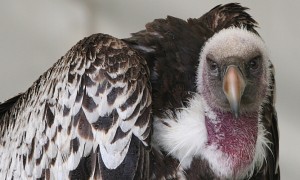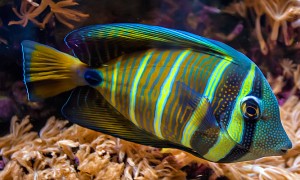Papers have been signed, furniture has been delivered, and the boxes have all been emptied. When the work is done, all that is left to do is to enjoy your new home. A pond in the back yard has a welcome relaxing quality. But the pond could also be shared with an unwelcome guest.
Where Do Alligators Live?
You might be thinking, “They can’t be in my backyard, can they?” While alligators require water to live, they are not particular about which body of water they inhabit. A backyard pond, swimming pool, or swamp is all the same to them. Alligators around the Jacksonville area have been known to make an appearance in various backyards and private ponds. They have even been found at beaches on occasion.
Telltale Signs
There are two specific telltale signs to look for around the pond. Check around the sides of the pond for large indentations in the mud or bank. Also, look for a slide area, stretching from the bank into the pond water. These two easily discernible signs indicate an alligator’s presence.
During the summer months, alligators have their nesting periods, placing nests around the edges of ponds. Measuring between two and four feet high, the nest is in the shape of a mound, allowing for easy detection.
Alligator Prevention
To reduce the possibility of an these beasts taking up residence within your pond, an alligator study by the University of Florida says there are a few preventive measures you can take. First, make sure the water’s edge remains clear of debris and vegetation. Vegetation is a favorite hiding place for these powerful animals on account of the camouflage it affords.
Second, while it might be tempting to feed local ducks or geese, this is not a good practice. By keeping waterfowl attracted to the pond, you are inviting alligators to a new hunting ground. Birds are prey for these massive reptiles, and by encouraging the waterfowl to stay, you greatly increase the chance that alligators will migrate to the pond. Alligators will go where the food is, so removing their food supply will certainly help to force them to hunt farther afield.
Feeding the turtles or fish that reside in the pond can cause the same problem. If you have a smaller pond, install a fence—about four and a half feet high—around it to prevent the alligators from entering the pond. Fishing from the pond is fine, but be sure not to leave anything behind. Cleaning the fish by the pond, leaving fish parts on the ground, or tossing offal back into the water will attract alligators.
Lastly, if you do suspect an alligator has made it’s way into your backyard or pond, be sure to keep your dogs and other pets out of the water. Dogs can look like prey to alligators, even more so than humans, because of their size.
Where do alligators live? Near bodies of water, which means alligators are quite common in the Jacksonville area. By taking precautions against and looking for the telltale signs of these dangerous reptiles, your pond should remain a source of calm and relaxation. For more information, check out the Florida Fish and Wildlife Conservation Commission’s list of alligator safety tips.
Image Source: Flickr
[cf]skyword_tracking_tag[/cf]







Not even 2 hours ago I discovered the manmade retention pond behind my motel had alligators, plural. I’ve noticed the trails through the water plants (long trails through the plants about 8-10 inches wide) leading from the muddy banks into the water. I also saw the 4-fingered, deep tracks in the mud, and the big indentations. Chalked it up to beavers and people fishing, as the pond is a beaver habitat and has plenty of fish in it. Wasn’t until I was down there, 4 or 5 feet from the water’s edge watching a beaver clean itself that I realized I’d been standing less than a stone’s throw away from a 9-foot-long ambush predator as it violently reduced the beaver population by 1. Came back to get my flashlight to check my surroundings better, went back down and took a better look in the water to see 3 alligators staring back at me: one too big, one too small and one that was juuuuust right.
Now I know the telltale signs of alligator habitation.